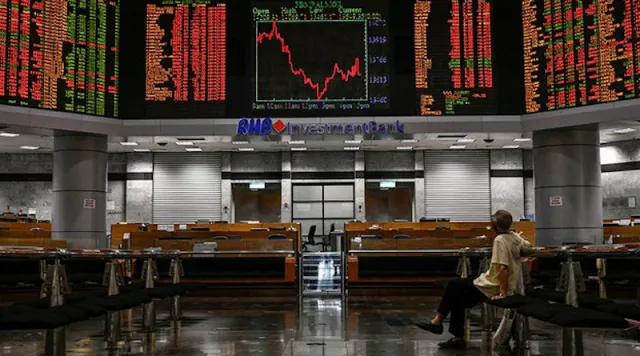KUALA LUMPUR: Malaysia is not likely to slip into a recession due to the diversified structure of its economy. Which is less dependent on commodities, aside from its pragmatic and responsive policies, said Bursa Malaysia chairman Tan Sri Abdul Wahid Omar.
He said that the agriculture and mining sectors now only contribute 14 percent to Malaysia’s gross domestic product. While the services sector accounts for 57 percent and the manufacturing sector contributes 24.3 percent.
“The diversity of our trading partners, where we are not overly dependent on one particular country, adds to our economic resilience.” He said in his opening remarks at the ‘Invest Malaysia 2022 Series 1: Building Resilience Amidst Volatility’ here, today.
Abdul Wahid said Malaysian banks and financial services companies have significant weighting in both the FTSE Bursa Malaysia KLCI and the FTSE4Good Bursa Malaysia sustainability index.
“These seven banking stocks alone, namely Maybank, Public Bank, CIMB Bank, Hong Leong Bank, RHB Bank, and Alliance Bank have a combined market capitalization of RM325.36 billion or about 20 percent of the total market capitalization of RM1.65 trillion as at end-June 2022,” he said.
“Malaysia is also home to the world’s leading Islamic capital market at RM2.2 trillion, representing almost two-thirds of the total capital markets,” he said.
He also said the financial system is complemented by well-functioning debt and equity capital markets, which were worth RM3.5 trillion as of June 30, 2022, where the debt capital market accounted for RM1.8 trillion and the equity capital market made up RM1.7 trillion.
He said the strength and stability of the financial system are important factors in Malaysia’s resilience. Where local banks are well capitalized, liquid, better managed, and effectively regulated and supervised by Bank Negara Malaysia.
“Banks also continue to fulfill their intermediation role by mobilizing funds to be channeled to productive sectors of the economy,” he said.
On the global front, Abdul Wahid noted that the United States-China trade tensions and the Ukraine-Russia conflict have also caused commodity prices and logistics costs to skyrocket. That Resulted in high inflationary pressures globally, forcing central banks to tighten their monetary policy to rein in inflation.
“This is likely to cause economic slowdown and potential recessions in some countries in 2023.”
















